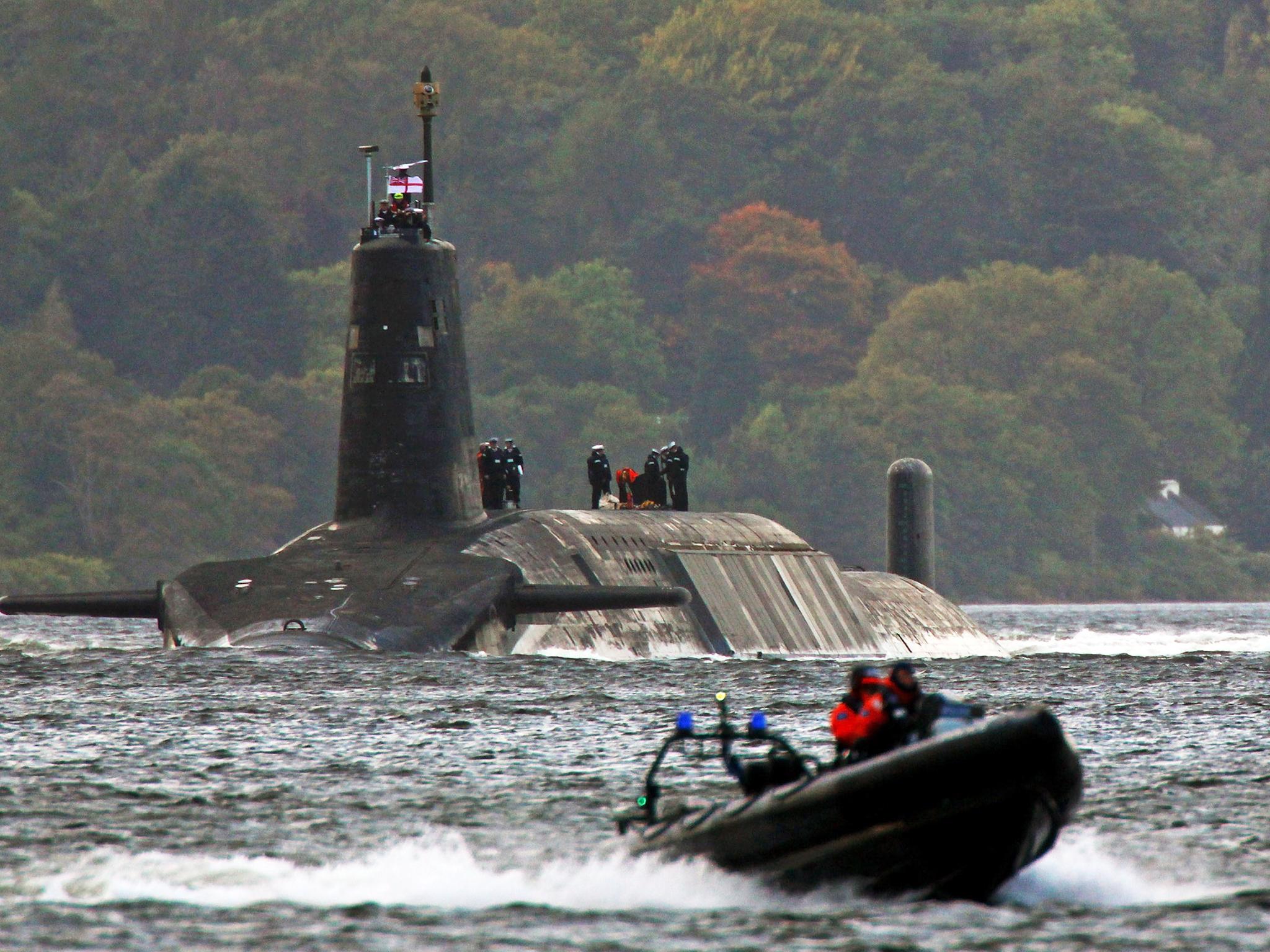Trident: David Cameron confirms date for vote on renewal of nuclear weapons system
MPs will vote on the future of the controversial weapons system in the House of Commons

Your support helps us to tell the story
From reproductive rights to climate change to Big Tech, The Independent is on the ground when the story is developing. Whether it's investigating the financials of Elon Musk's pro-Trump PAC or producing our latest documentary, 'The A Word', which shines a light on the American women fighting for reproductive rights, we know how important it is to parse out the facts from the messaging.
At such a critical moment in US history, we need reporters on the ground. Your donation allows us to keep sending journalists to speak to both sides of the story.
The Independent is trusted by Americans across the entire political spectrum. And unlike many other quality news outlets, we choose not to lock Americans out of our reporting and analysis with paywalls. We believe quality journalism should be available to everyone, paid for by those who can afford it.
Your support makes all the difference.Parliament will vote on the renewal of the Trident nuclear weapons system on 18 July, David Cameron has announced.
Replacement for the system is estimated to cost between £15bn and £20bn. The force currently consists of four submarines which are each capable of carrying up to 16 ballistic nuclear missiles which are capable of hitting targets up to 7,500 miles away.
At any moment in time, at least one submarine is actively on patrol in case an attack is considered required following a severe threat or strike against the UK.
The fleet will need to be replaced in 2028 and a decision is required by Parliament this year whether to renew the system.
The controversial scheme has proved divisive in Parliament. The Prime Minister has advocated that maintaining nuclear weapons amounts to an “insurance policy” which protects the UK from attacks by acting as a deterrent.
Announcing the vote date at the Nato summit in Warsaw, he reiterated his support for the scheme.
“The nuclear deterrent remains essential, in my view, not just to Britain’s security but, as our allies have acknowledged here today, to the overall security of the Nato alliance,” Mr Cameron said.
The Labour party has previously supported it but current leader Jeremy Corbyn has been a long-time opponent of renewal. It is expected Labour MPs may be given a free vote on the issue.
Mr Corbyn told Sky News: “We are having a look at all the issues surrounding it. I believe security in the world is achieved through peace, through democracy, through justice, through human rights.
“I do not believe that nuclear weapons actually enhance security, I support the nuclear non-proliferation treaty, which we are signed up to, which is trying to bring together collective disarmament. Those are the views that I will be putting forward.”
The Labour party has commissioned a defence review about its policy on nuclear weapons. A draft version has reportedly indicated the party will leave open the option of retaining nuclear weapons on a smaller scale, thereby providing a compromise between total disarmament and renewal.
The SNP has been vocal in its opposition of the scheme.
Join our commenting forum
Join thought-provoking conversations, follow other Independent readers and see their replies
Comments